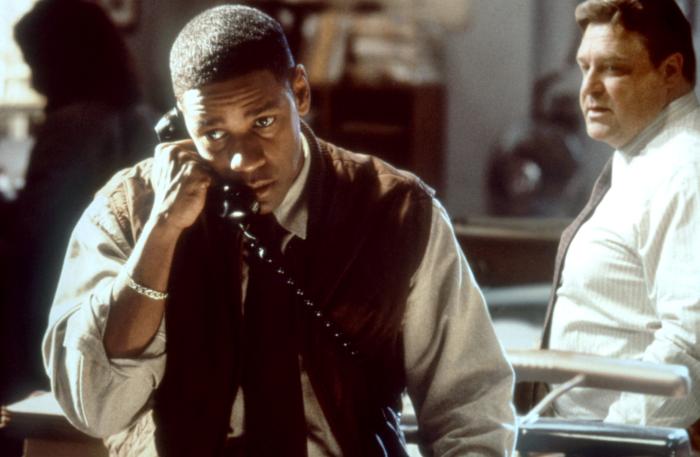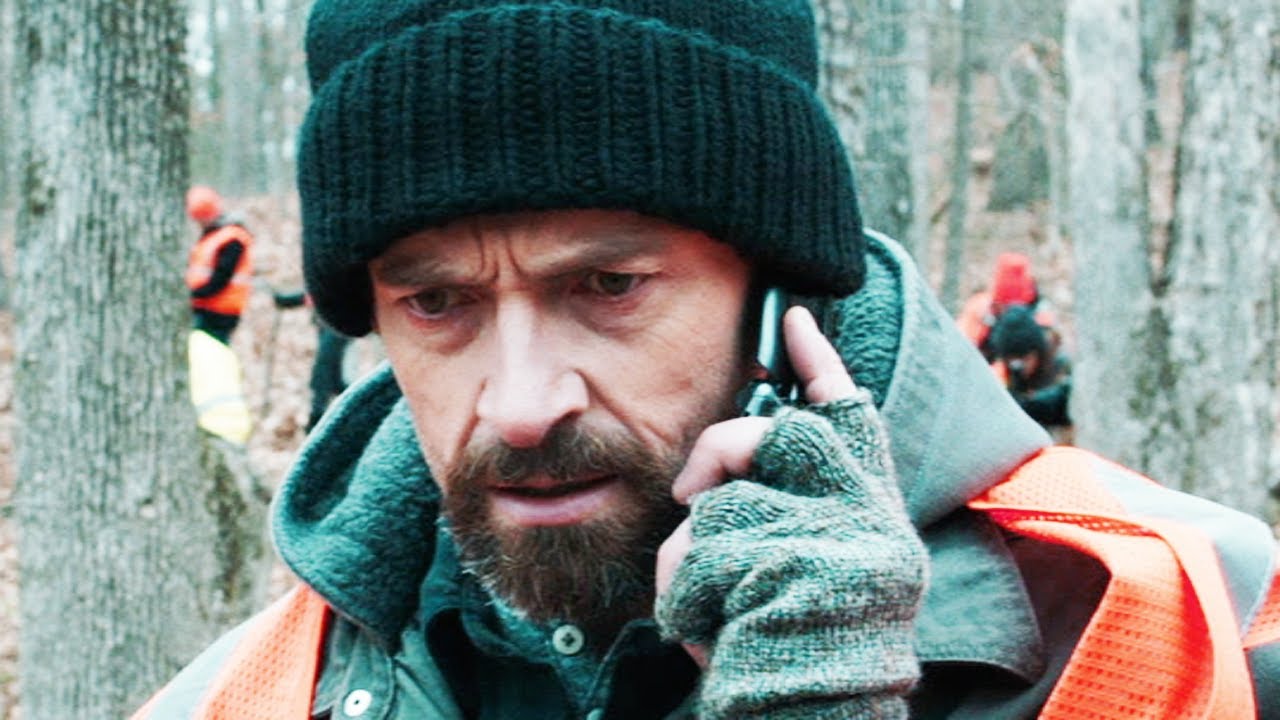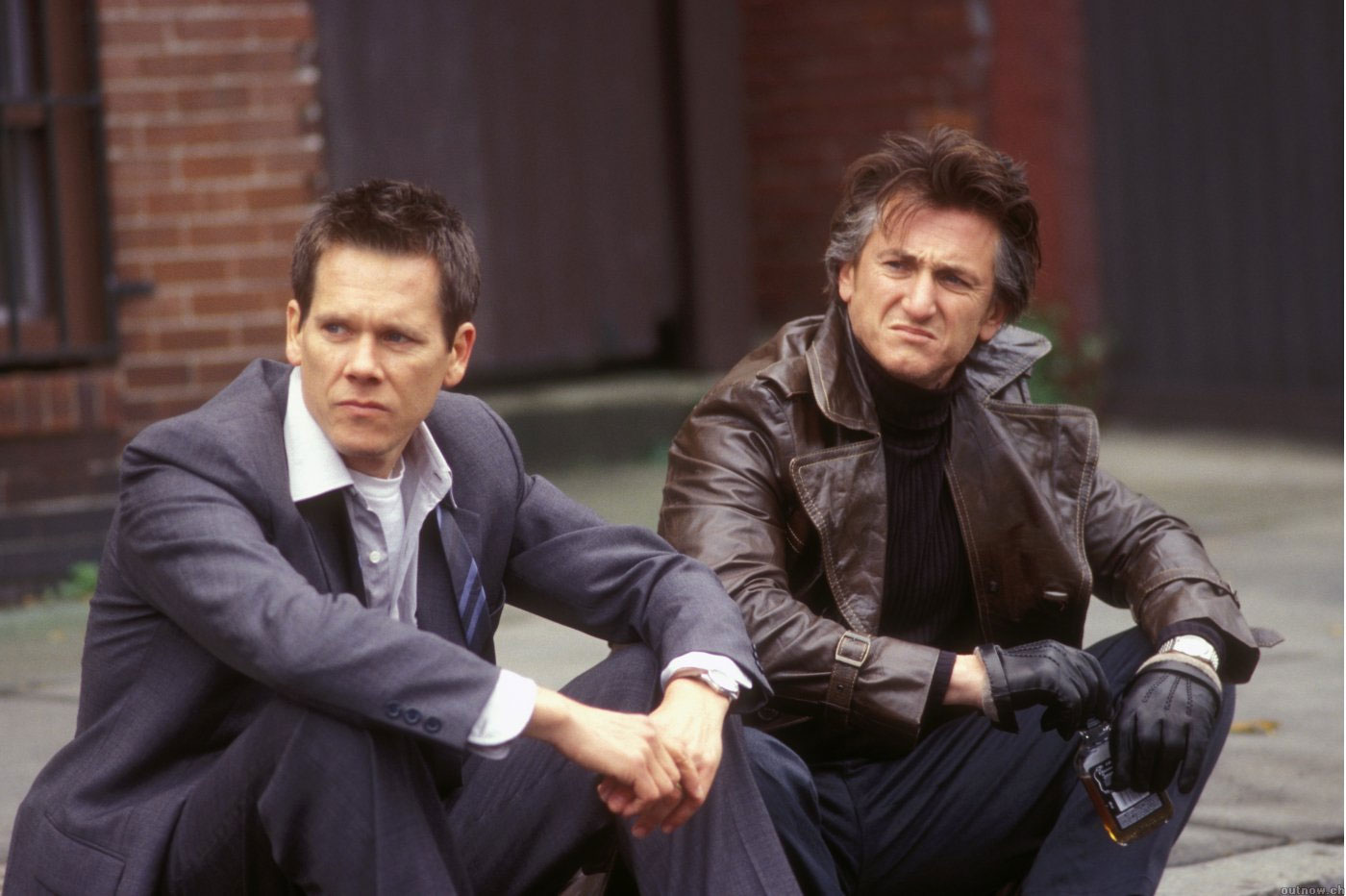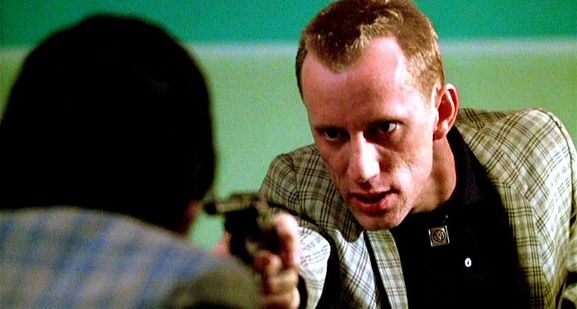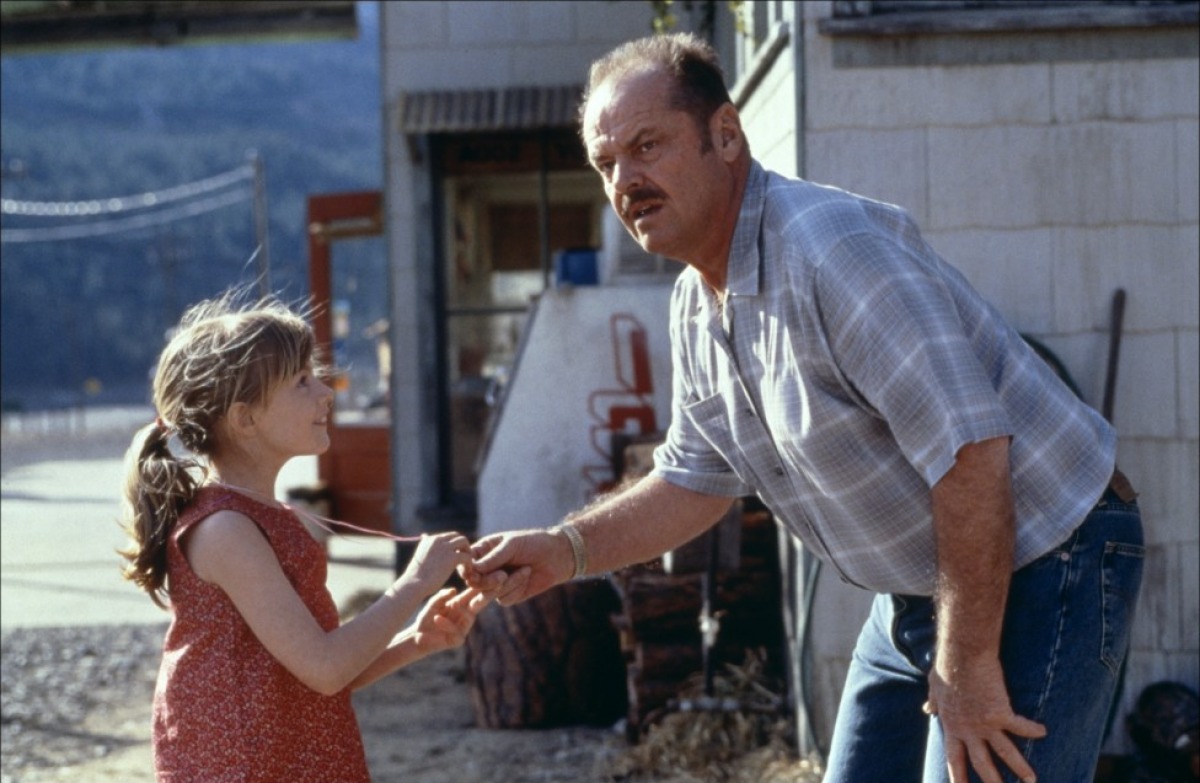
Just like real life crimes, films about crime aren’t supposed to be uplifting. After all, they are films about people wrongfully hurting someone and the consequences of those actions. But even in a genre full of sadness and unpleasantness, there are a select number that are darker than the rest. From the start, these films are descents into the depth of human fear and depravity that refuses to let the viewer up for air.
25. Fallen (Gregory Hoblit, 1998)
Detective John Hobbes (Denzel Washington) witnesses the execution of Edgar Reese (Elias Koteas), a serial killer who he caught. After the execution, Hobbes and his partner Jonesy (John Goodman) start to investigate a string of serial murders that are almost identical to the murders committed by Reese and they believe they are the work of a copycat. As they investigate further, Hobbes begins to think there is something more demonic involved in the killings.
The demonic spirit, known as Azazel, can possess people and make them do horrible things. He is an eternal evil; time holds no boundaries for him and he’s around just to make people suffer. Hobbes tries to stop the demon with time on his side, but as he finds out, sometimes not even giving everything is good enough to overcome evil.
24. Prisoners (Denis Villeneuve, 2014)
It’s a gray Thanksgiving Day and two families living in a small Pennsylvania town get together to have dinner. Sometime during the afternoon, the youngest daughters of both families go missing.
The police are called in, and their first suspect is a mentally handicapped young man named Alex Jones who was driving a pick up with a camper on it near the area where the girls went missing. Believing Alex is the kidnapper, Keller (Hugh Jackman), who is the father of one of the girls kidnaps Alex and tortures him over the next several of days.
At the base of the movie it is about of desperation of a parent. It shows that they will do inhuman things if it means that they get their child back. In this case, the father is willing to become the villain by torturing someone with a mental capacity of a 10-year-old for days. Sadly, the crimes of the real culprit are troubling just as troubling and will haunt the survivors for the rest of their lives.
23. Mystic River (Clint Eastwood, 2003)
Clint Eastwood’s adaptation of Dennis Lehane’s novel revolves around Dave Boyle (Tim Robbins), Sean Devine (Kevin Bacon), and Jimmy Marcus (Sean Penn) who grew up together in Boston. One day in 1975, the boys were playing outside when child molesters kidnapped Dave, but he managed to escape after four days of abuse. 28 years later, they all live in Boston but have taken very different paths in life.
Jimmy used to burgle houses, but has reformed and is running a neighborhood store. Sean is a detective and Dave is a shell of a man who works at a blue-collar job. Jimmy is also the father of a 19-year-old daughter named Katie, who is found beaten to death. Jimmy is distraught and looks for the killer himself, even though Sean warns him to stay away.
While the plot is pushed along by the murder of Katie, the real story is told in the secrets and the pasts of the characters. In a place where you grow up, old secrets never really go away, they are more like scars that no one talks about anymore.
22. Bully (Lark Clark, 2001)
Bully tells the story of real life murder of 20-year-old Bobby Kent, which took place on July 14, 1993 in Weston, Florida. Bully starts in the months before the brutal murder. For years, Bobby (Nick Stal) has been viciously bullying by Marty (Brad Renfro) and he is getting sick of it. His “girlfriend” (for lack of a better term) Lisa (Rachel Miner), suggests they kill Bobby. She is also worried she might be pregnant and Bobby is the father; he raped her after beating Marty unconscious.
The two of them, along with four other teenagers (three of which didn’t know Bobby) formulate a plan to kill him. Eventually, they realize they need more help, so they hire a teenager who claims he is a professional hit man, named Derek (Daniel Franzese).
Due to the fact that this is based on true events just makes it even more depressing. It’s a story involving too many young people that didn’t say no or cared what they were doing is wrong. The characters they are depicted as vapid and hedonistic with little grasp of the real world. Bully is a bleak depiction of youth gone wrong.
21. Compliance (Craig Zobel, 2012)
Compliance is a docudrama based on an incident in a strange series of crimes that happened over the span of a decade and they are referred to as the strip search prank call scams. The movie is based on the last call that was made to a McDonald’s in Bullitt County, Kentucky on April 9, 2004.
In the film, Sandra (Ann Dowd), a manager of a fast food restaurant speaks to a man on the phone who says that he is a police officer and he gives her a description of a possible suspect who he is looking for. Sandra tells the caller the description he gave matches a co-worker named Becky, and the officer says that is who he is looking for. He tells Sandra to take Becky into an office and do a strip search of her, and amazingly, both Sandra and Becky comply with the caller’s demands.
What sets Compliance apart from the other crime films on the list is that the crime committed in it isn’t violent. Instead, the crime speaks about the vulnerability of the human psyche. That some people will explicitly follow directions, without question, simply because someone they believe to be an authority tells them to do so.
Of course, there are people who do not follow orders as unquestioning as the characters in the movie, but the film, and studies done on scenarios like the one depicted in the film, show that way too many people blindly do as they are told. And this type of obedience can be incredibly dangerous. If you look at different massacres in recent history like the 1994 Rwandan Genocide or the Bosnian Genocide in 1995, not enough people said “no” and too many people just followed orders.
20. The Onion Field (Harold Becker, 1979)
The Onion Field is based on the non-fiction book about the kidnapping of two police officers by two criminals in Los Angeles in 1963. The two officers, Karl Hettinger (John Savage) and Ian Campbell (Ted Danson), are kidnapped during a routine traffic.
The two criminals, Gregory Powell (James Woods) and Jimmy Lee “Youngblood” Smith (Franklyn Seales) take the two officers to an onion field outside of the city. Powell believes they have already committed a capital crime, so he kills Campbell, but Hettinger is able to escape. Powell and Smith were arrested a short time later. They were convicted and sentenced to death.
That should be the end of the story in an already bleak chapter in the history of the LAPD, but the story only gets worse from there. In a strange twist of fate, the two men are saved from death row and are looking at parole, while fellow officers vilify Hettinger for not doing enough to save his partner. It’s a sad story about how survivors can be punished simply because they lived.
19. Surveillance (Jennifer Chambers Lynch, 2008)
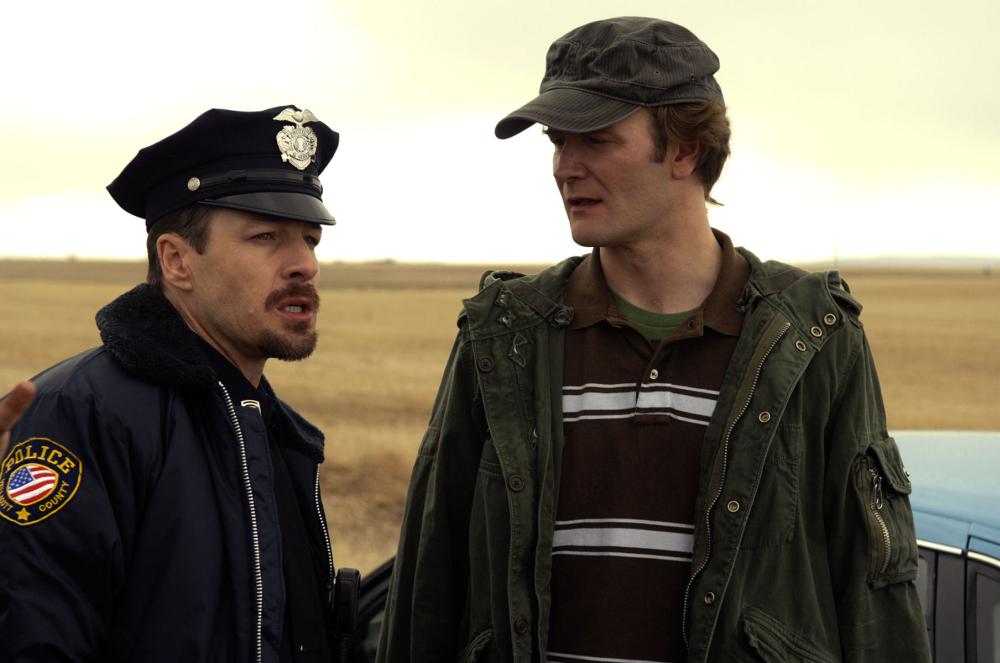
Jane Chambers Lynch’s second film, and her first in over 15 years, is a grisly-shocking tale told in the Rashomon style. A pair of FBI agents, played by Bill Pullman and Julia Ormond, arrives at a small police station to interview three people from three different cars that were involved in a massacre on the highway.
They are a little girl from a family of four that was on a vacation, a drug addict on a joyride with her boyfriend, and a sadistic cop who likes terrorizing innocent motorists with his partner. Also, there are two serial killers who are on a killing spree in that area of the state and the agents think they may be involved somehow.
This film utilizes a number of disgusting and deplorable crimes like serial killings and mass murders to create a starkly violent and dark film. And while the murders are gruesome, the film is also about the shocking illusion of authority and people’s powerlessness against it.
18. The Pledge (Sean Penn, 2001)
Detective Jerry Black (Jack Nicholson) is set to retire from the police force, but during his retirement a call about the murder of a young girl breaks up the party. Jerry and his partner Stan (Aaron Eckhart) respond to the call and have to inform the parents.
When they are at the family’s home, the girl’s mother makes Jerry swear on a cross that is going to bring the killer to justice. He does so, and the next day, a Native American man with diminished mental capacity is arrested and he confesses to the murder.
After confessing, the suspect kills himself and the case is closed to everyone, except for Jerry. He believes the killer is still out there and that he drives a large black car. He wants to reopen the case, but his request is denied and he ends up retiring. But even in retirement, he continues to track the killer.
While closure is good to have, especially if it means a child killer is behind the bars, The Pledge shows police work is never that clean. That justice is more than punishment, it’s about protecting important tracking down the right man is. It means the difference between life and a brutal death for children. It also shows without closure to a crime, it can consume those who investigate it.
